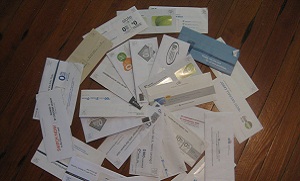
Without specific action taken to keep your Experian credit score on the up and up, it’s never going to get much altitude at all. People tend to get discouraged with their credit scores.
After all, they think, I’m careful with my money. I guess there’s nothing else I can do.
In fact, there are plenty of things you can do to boost your credit score. Credit scores are subtle things, and until you start to understand the consumer behaviors that cause them to rise and fall, you’ll never be able to change your spending and credit behavior to maximize your own.
The following are generalizations, and there are many more tips and tricks to raise a credit score. But understanding these simple facts will help you see the basics of your credit score at work in a matter of weeks.
A Good Credit Score Comes From Consistency
A good credit score reflects a consumer who is in control of his or her finances. To achieve this, you’ve got to pay off your bills on time, always spend less than you earn, borrow money infrequently, and not carry too much debt (less than 30% of your available debt used is a good benchmark).
Therefore, if you are in control of your finances, yourExperian credit score should reflect this. If you are not in control of your finances, or are only intermittently, your credit score will reflect this too.
Experian Credit Score Reflects Specific Information
It’s important to know what financial events get reflected by a credit report and its associated score. Bankruptcy and your credit score don’t mix, but this event only stays on your credit report for seven years. From there, you earn a clean slate with good habits. Other events, like unpaid bills, can stay on for years at a time.
But this doesn’t mean you have to simply tolerate them. By paying off these events, you may have them erased from your credit report over time. Try disputing negative credit marks, but only if you’re able to pay the amount required to satisfy the account.
If you can pay, do so, then tell your creditor to contact your credit reporting agency and let them know you’ve paid the outstanding amount. Your score will rise accordingly.
Good Experian Credit Score Reflects Some, But Not Too Much Credit
To have good credit, you have to have at least one credit account. To have great credit, you usually have to have a few more. This demonstrates that you are an adult with complex finances which you are nonetheless in control of. It speaks well of you and earns you a good Experian Credit Score.
However, if you have thirty open accounts, a few of which are maxed out, this makes you look like you’re out of control financially. Consider spreading some of your debt around to other cards, reign in your spending habits, and start to keep closer tabs on your credit use with a plan to keep your payments on track.
There are plenty of other ways to boost (or damage) your Experian Credit Score, but these are some of the general methods to give you a score you desire. A good credit score can save you money on loans and payments for the rest of your life, so it’s a good thing to cultivate. Follow the links above for even more helpful hints. You need to understand the credit score game.
This blog post was written as part of a sponsored program for ConsumerInfo.com, Inc., an Experian Company. All views expressed are entirely my own and were not influenced or directed by Experian. This article is provided for general guidance and information. It is not intended as, nor should it be construed to be, legal, financial or other professional advice. Please consult with your attorney or financial advisor to discuss any legal or financial issues involved with credit decisions.
